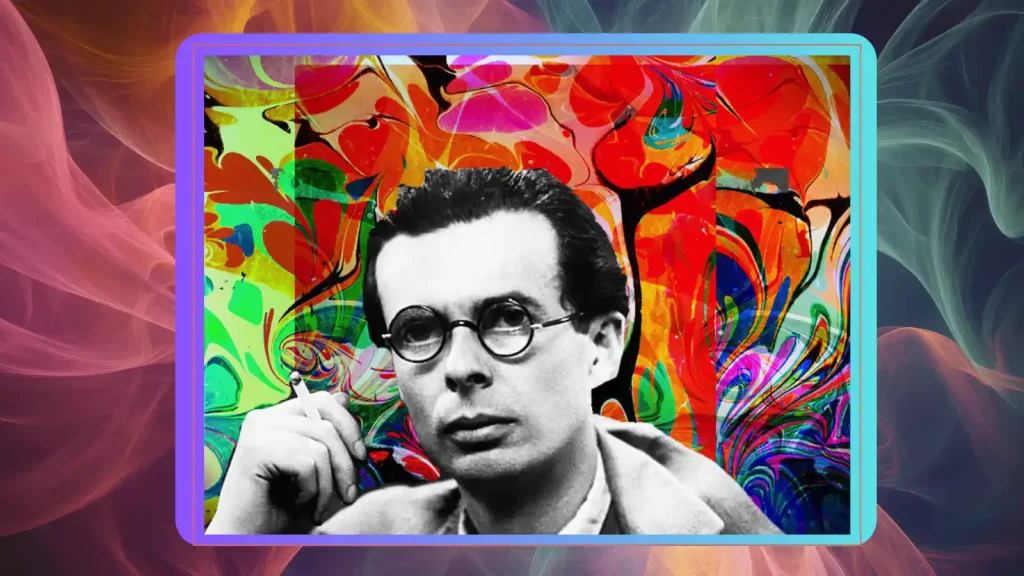Aldous Huxley Net Worth 2024: Earnings from Literature & Film

Introduction
Aldous Huxley, an iconic figure in English literature, is best known for his dystopian science fiction masterpiece, Brave New World. With a career spanning various genres, including novels, essays, and screenwriting, Huxley’s work continues to resonate, particularly as modern society faces many of the ethical and technological challenges he predicted. This article explores Huxley’s life, achievements, financial standing, and lasting impact on literature and philosophy.
Key Details at a Glance
| Detail | Information |
|---|---|
| Full Name | Aldous Leonard Huxley |
| Date of Birth | July 26, 1894 |
| Age (at death) | 69 years old |
| Occupation(s) | Novelist, Essayist, Screenwriter, Philosopher |
| Nationality | British |
| Net Worth (2024) | Estimated $10 million |
| Sources of Wealth | Book sales, Screenwriting, Lectures |
| Parents | Leonard Huxley, Julia Arnold |
| Marital Status | Married |
| Spouse | Maria Nys (1919-1955), Laura Archera (1956-1963) |
| Children | Matthew Huxley |
| Education | Balliol College, Oxford |
| Known For | Brave New World, Island, The Doors of Perception |
| Major Awards | Golden PEN Award for Lifetime Achievement |

Early Life and Education
Aldous Leonard Huxley was born into a notable intellectual family in England. His father, Leonard Huxley, was a writer and editor, while his mother, Julia Arnold, was the niece of poet Matthew Arnold. Growing up in this culturally rich environment exposed him to a broad intellectual and artistic foundation.
While attending Balliol College, Oxford, Huxley faced a significant challenge: a severe eye disease left him partially blind for most of his life. Despite this, he graduated with honors, and his resilience against adversity later became a defining feature of both his personal philosophy and literary work.
Relevance Today: Huxley’s early life demonstrates the transformative power of resilience and intellectual curiosity, themes central to his exploration of human potential.
Early Literary Pursuits and Initial Success
Huxley’s literary career began with the satirical novel Crome Yellow (1921), which critiqued British intellectual society and established him as an astute, critical voice. His early works, combining wit and philosophical inquiry, often questioned societal norms—a theme that would continue throughout his life.
Legacy Insight: Huxley’s early novels show his unique ability to blend humor with deep social critique, a combination that drew readers and thinkers to his work then and now.
Breakthrough with Brave New World and Its Cultural Impact
Published in 1932, Brave New World propelled Huxley to international fame. The novel presents a dystopian future where technological control sacrifices individual freedom for societal order—a chilling prediction that resonates deeply with current debates on AI, surveillance, and bioethics.
Takeaway: Brave New World remains essential reading, especially as today’s society navigates the ethical boundaries of technology. Huxley’s cautionary tale challenges readers to consider how far we should allow technology to shape our lives and values.
Later Works and Mystical Exploration: From Brave New World to Psychedelics
As his interests evolved, Huxley turned toward mysticism and consciousness. His later works, such as Island and The Doors of Perception, reflect this shift, documenting his experiments with psychedelic substances and his belief in alternate states of reality. Island even offers a utopian counterpoint to Brave New World, envisioning a society that balances scientific advancement with spirituality and mindfulness.
Modern Relevance: Huxley’s exploration of consciousness anticipated modern psychological and spiritual movements. His openness to psychedelics has influenced contemporary research on consciousness and mental health therapies, making his work as relevant today as in his lifetime.
Financial Standing and Net Worth
As of 2024, Aldous Huxley’s estate is valued at around $10 million, stemming from royalties, book sales, and posthumous adaptations.
Sources of Wealth
- Book Sales: Huxley’s novels, particularly Brave New World, continue to generate revenue worldwide and remain popular in academic and cultural discussions.
- Screenwriting: Huxley’s work in Hollywood, including several uncredited contributions to major films, provided substantial income during his lifetime.
- Lectures and Essays: Known for his eloquence, Huxley’s lectures and essays have left a lasting intellectual impact, further adding to his financial legacy.
Financial Achievements and Growth
Huxley’s estate continues to benefit from the enduring relevance of his work. Adaptations of Brave New World and increasing interest in his spiritual writings ensure that his financial legacy remains secure.
Insight: As new generations discover Huxley, his estate’s value and influence are likely to grow, reflecting the timelessness of his work.
Personal Life and Philosophy
Huxley’s personal life mirrors his intellectual journey. His first marriage to Maria Nys produced his son, Matthew Huxley, and his second marriage to Laura Archera (a writer and therapist) involved a mutual interest in mysticism and alternative health practices. Together, they embraced a life of intellectual exploration, including spirituality and philosophy.
Public Image and Controversies
Though often seen as a visionary, Huxley’s advocacy for psychedelic exploration and his unorthodox views on religion invited controversy. However, his intellectual rigor and respectful approach to diverse perspectives helped maintain his positive public image.
Legacy Insight: Huxley’s personal life and open-minded philosophy serve as a reminder of the importance of lifelong learning and the willingness to challenge societal norms.
Lasting Impact and Legacy
Aldous Huxley’s contributions extend beyond literature into philosophy, psychology, and even spirituality. Brave New World continues to serve as a touchstone in discussions on technological ethics, while The Doors of Perception remains influential in studies on consciousness. Huxley’s work challenges readers to think deeply about human potential, societal values, and the future we envision.
Takeaway: Huxley’s legacy is rooted in his ability to foresee and question societal trends, particularly around technology and consciousness, making his work more relevant than ever.
FAQs
What is Aldous Huxley’s most famous work?
Huxley’s most iconic work is Brave New World, a dystopian novel exploring technology’s impact on society and individual freedom.
Did Huxley experiment with psychedelics?
Yes, Huxley experimented with mescaline, detailed in The Doors of Perception, which became foundational in the study of altered states.
How did Huxley’s partial blindness affect his career?
Despite his disability, Huxley’s perseverance allowed him to achieve extraordinary success, demonstrating resilience and dedication.
What were Huxley’s views on technology?
Huxley believed technology had great potential but warned against its dehumanizing effects, as depicted in Brave New World.
Other notable works by Huxley?
Additional significant works include Island, Point Counter Point, and The Doors of Perception, each exploring different facets of society, ethics, and consciousness.
Conclusion
Aldous Huxley’s life and work epitomize the power of intellectual exploration. His legacy continues to inspire readers to think critically about human potential, technological ethics, and societal progress. Huxley’s contributions to literature and philosophy ensure that his insights and questions will endure, challenging future generations to reflect on the nature of humanity.





